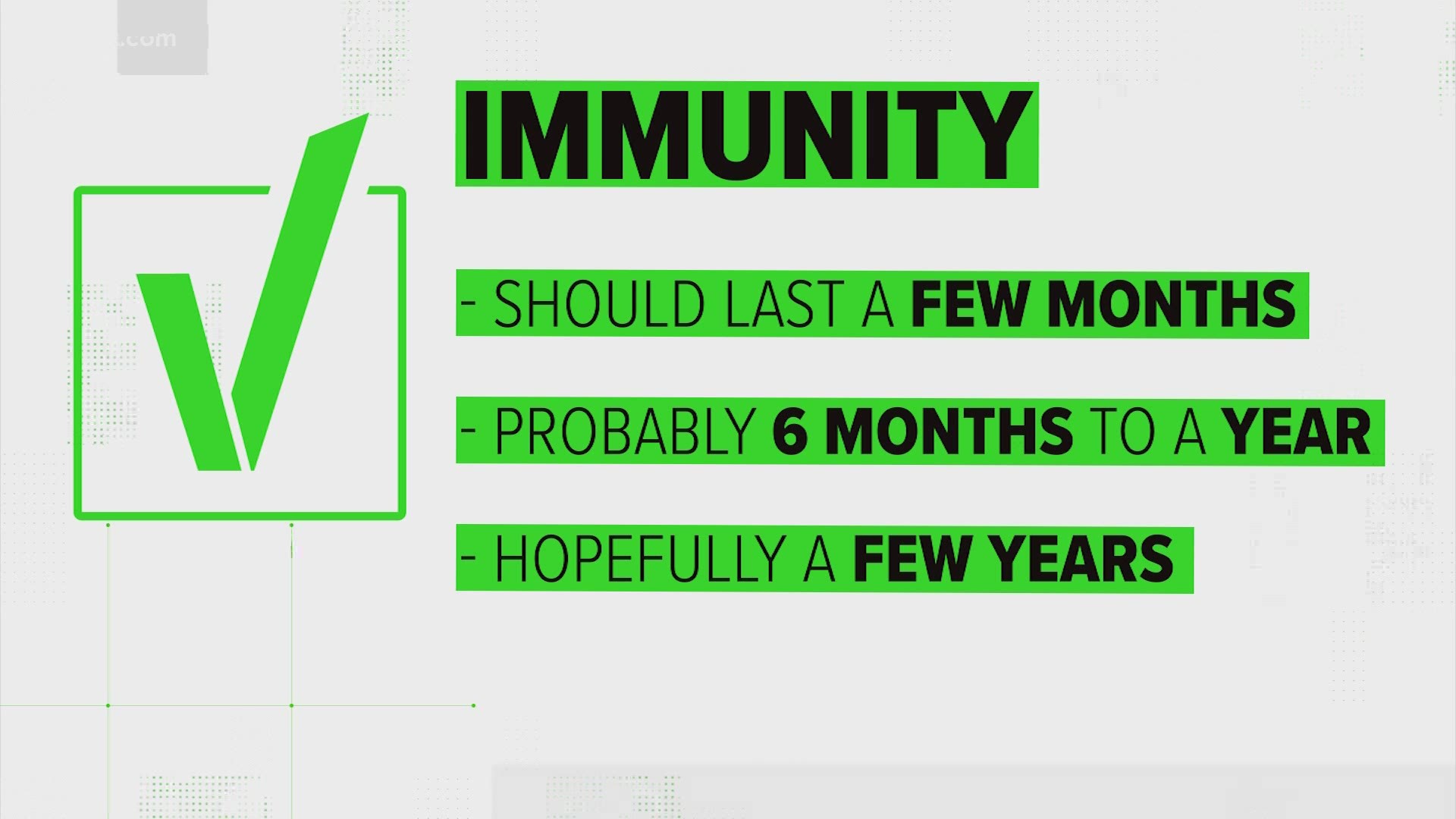PHOENIX — In the middle of a global pandemic, another crisis has also been brewing when it comes to mental health and social well being. And now, many are questioning how to return to whatever is normal on the other side after months of isolation.
Psychology experts who have been studying the effects of isolation on people during the pandemic are also helping answer the questions that have been swirling. Many have been asking how to look ahead to "life after COVID-19."
Kelsey Andrews is one of those people. She is wrestling with being a first-time mom during the coronavirus outbreak and finding ways to allow her daughter to socialize safely.
"Last year, at the very beginning was so incredibly difficult, because I had already been isolated for two-and-a-half to three months and then all of a sudden, I'm ready to go out and we have to come in," Andrews said.
Andrews was about to go back to work from maternity leave when the outbreak hit. She made the tough decision to stay home longer with her young daughter as COVID-19 picked up steam around the world.
"I didn't handle it my best at the beginning," Andrews said. "I cried a lot."
Fast forward about a year later, like many of us, Andrews, her husband and daughter Avery remain very isolated. They're concerned about the long-term impacts of isolation on their developing child.
"She's never even met another baby. Where's her social development going to go?" Andrews said.
Kristen Northup and Ryan House are on the front lines of the mental health impacts of COVID-19 as psychology doctoral students.
They recommend parents not stress about the lack of social interaction their children may be experiencing.
"As long as they have that secure base to bounce off from, they're going to be just fine," House said.
Northup and House added that social interaction is important, and parents can be creative in how their children engage safely with others during a pandemic. That can look like social distanced playdates, online groups and more.
This team advises four key principles to set us up for the upcoming transition back to our "new normal." They've developed these while studying how we can all lessen the stress of pandemic isolation in our daily lives.
Their four recommendations for beating the stress and isolation are: Setting a good routine, scheduling safe social interaction, taking care of yourself, and when you can, switching things up.
"Doing something a little different really creates a little bit of space in your emotions, in your psyche, to allow for a whole new possibilities going forward," House said.
"Understanding where you were before all of this happened, and then kind of identifying where it is you want to be," Northup said.
As we've seen, the impacts of isolation moving forward aren't just a concern for younger generations. Many of our elderly neighbors are battling extreme loneliness.
"With the isolation and with the lockdown in place, that emotional toll that it took on him and that level of depression he began to feel was elevated essentially," Lauren Strait said.
Strait quickly found herself unexpectedly caring for her elderly grandfather during the pandemic. Her role changed fast, from granddaughter to protector.
"The emotional and the physical and mental (toll), all of those things were kind of collapsing for him at once and it became the perfect storm," Strait said.
Our psychology experts recommend those original key principles to help in these cases, but say caregivers are important game changers. They can help by scheduling those social interactions for them safely now and then after the pandemic.
"Typically when we're part of a community, then we can identify a sense of purpose," House said. "We're getting some reinforcement, some engagement. We can see ourselves as part of a larger good. When we're isolated, we don't get any of those rewards."
As these mental and emotional struggles weigh heavy on millions, the psychology team has one more piece of advice.
"People who are able to put things in perspective and remember the past and see the past, are in a much better spot to move off the pandemic and move back into normal life," House said.
Keep in mind, COVID-19 is still fairly new. Researchers have been working around the clock studying the long term impacts of COVID-19 on our mental health.
So for now, it's the simple things -- self care, structure and routine -- that can help guide all of us through the pandemic and prepare us for whatever "new normal" lies ahead.


